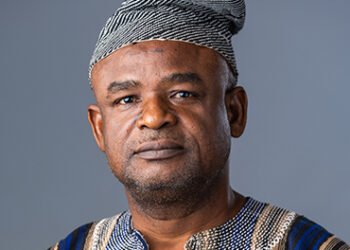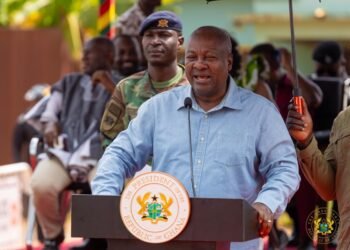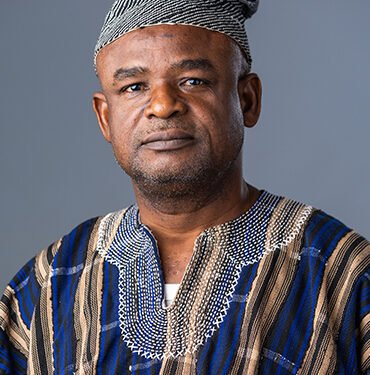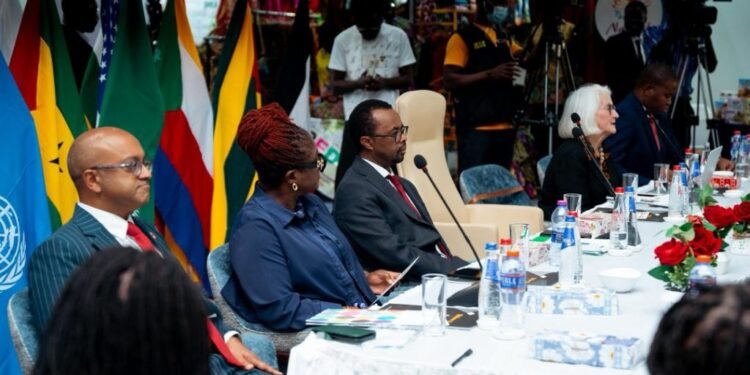Dr. Steve Manteaw, Chairman of the Ghana Extractive Transparency Initiative, has addressed concerns about why Civil Society Organizations (CSOs) have been relatively quiet on the GoldBod legislation.
According to him, this is not the first time civil society has supported major legislation in Ghana, referencing the Petroleum Revenue Management Act (PRMA), which was widely backed under a National Democratic Congress (NDC) government.
“When politicians are proactive in creating opportunities for citizens to input into major policy decisions, there’s usually less acrimony.”
Dr. Steve Manteaw
Accordingly, he cited the extensive consultations that preceded the passing of GoldBod, stating that these engagements played a crucial role in reducing opposition.
The GoldBod process involved a major stakeholder consultation in Accra, which brought together various interest groups.
Following this, CSOs requested a separate consultation to raise key concerns.
Dr. Manteaw detailed that during these discussions, “issues were raised, including a potential regulatory conflict with the Minerals Commission.”
Furthermore, CSOs pushed for stronger transparency and accountability provisions and insisted that lessons be drawn from the legacy debt issues of the Precious Minerals Marketing Company (PMMC) in gold trading.
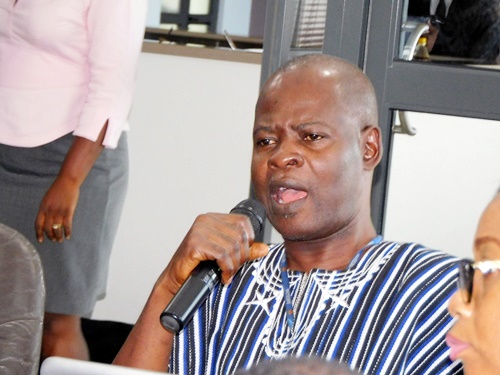
These efforts led to significant amendments to the legislation. CSOs were allowed to submit a position paper outlining their recommendations, and many of their proposals were incorporated into the final law.
This proactive approach helped to minimize the usual controversies that accompany policy decisions of this magnitude.
Dr. Manteaw also underscored the importance of nationwide engagement, explaining that additional consultations were held in key mining regions to ensure local stakeholders were heard.
“The approach signifies a new era in our democratic culture, where our leaders are beginning to recognize that when they create opportunities for citizens’ engagement, they get told all the misgivings and issues of disagreement in the room.”
Dr. Steve Manteaw
Accordingly, he explained that when citizens are met with closed doors and their concerns are disregarded, it inevitably leads to heightened tension and conflict.
In such situations, the lines of division are clearly drawn, and the resulting backlash becomes unavoidable.
This, he noted, marks the beginning of a more combative and confrontational atmosphere, where the exchange of criticisms and opposition intensifies.
Addressing Lingering Concerns
Despite the broad consultations and efforts to address various concerns, Dr. Steve Manteaw recognized that there are still individuals and groups who remain skeptical about GoldBod.
He encouraged these concerned parties to actively engage with the GoldBod office, located at the former PMMC headquarters, Diamond House, in Accra.

Additionally, he offered them the option to contact him directly via messenger for further clarification or to discuss any lingering doubts.
“I take note that some compatriots still have issues related to the GoldBod. Such also deserve to be heard.”
Dr. Steve Manteaw
He further emphasized that the committee remains open to feedback and is willing to address any lingering concerns.
As the implementation phase commences, he emphasized that there remain ample opportunities for continued input.
The creation of essential regulations, guidelines, and practice notes needed to operationalize GoldBod will offer further opportunities for refinement and enhancement.
These steps will allow for additional adjustments and improvements to ensure the system’s effectiveness and efficiency.
He wrapped up by emphasizing the importance of collective responsibility, urging all stakeholders to stay actively engaged and take a proactive role in shaping Ghana’s extractive sector policies.

He reminded the public that the task of national development is a shared one, saying, “We are all integral to the process of building and strengthening our motherland.”
His call underscored the need for continued collaboration and active participation from all sectors of society in driving the country’s progress.
While Civil Society Organizations (CSOs) have raised important concerns, their participation in the consultation process has been instrumental in refining the legislation, ensuring that transparency and accountability are at the forefront.
The government’s engagement of diverse stakeholders and willingness to address contentious issues reflect a growing recognition of the need for inclusive decision-making in governance.
Meanwhile, the continued involvement of all parties—especially CSOs—remains essential for the success of GoldBod and for fostering a culture of collaboration in Ghana’s democratic development.
READ ALSO: Edem Shares Significance of Collaboration in the Music Industry




